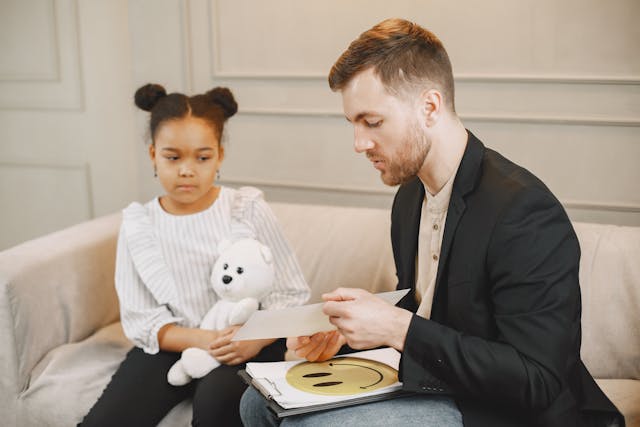What are ICD-10 codes?
ICD-10 codes, or the "International Classification of Diseases, Tenth Revision," are used by physicians, health care providers, and public health officials worldwide to classify and code all diagnoses, symptoms, and procedures recorded in conjunction with hospital care. Developed by the World Health Organization (WHO), these codes provide a standardized language for reporting and monitoring diseases.
Each ICD-10 code is a unique combination of letters and numbers corresponding to a specific medical diagnosis or health condition. This standardization allows for consistent and transparent data collection and reporting, crucial for epidemiology, health management, billing, and insurance.
How does ICD-10 apply to outpatient speech therapy services?
ICD-10 codes are integral to outpatient speech therapy services, serving several crucial functions that facilitate care delivery, billing, and patient outcomes tracking.
Firstly, the accurate use of ICD-10 codes allows speech-language pathologists (SLPs) to document a patient's diagnosis. Each speech or language disorder is associated with a specific ICD-10 code, which helps to outline the scope of developmental disorder and the therapy required. For example, a child diagnosed with expressive language disorder (ICD-10 code F80.1) will receive targeted interventions that differ from those of a child with mixed receptive-expressive language disorder.
Moreover, these codes are essential for billing and insurance purposes. Health insurance providers rely on ICD-10 codes to determine the necessity and appropriateness of the therapy provided, affecting the approval and reimbursement of therapy sessions. Accurate coding ensures that treatment is covered under the patient's health plan, minimizing out-of-pocket expenses for families and ensuring continuity of care.
ICD-10 codes also facilitate the tracking and reporting of treatment outcomes in outpatient speech therapy. By using speech-language pathology-related standardized codes, therapists can efficiently document changes in the patient's condition, assess the effectiveness of interventions, and make informed decisions about continuing or adjusting treatment plans.
Top ICD 10 Codes for Speech Therapy (2024)
Because of the nature of ICD-10 codes, professionals use over 70,000 diagnosis codes. While your patient’s medical record biller must be well-versed in the codes that apply to speech therapy, you should become acquainted with the most commonly used codes. Here are the ten most frequently used codes by speech therapists in 2024 and their descriptions.
F80.0: Phonological disorder
Code F80.0 describes phonological disorders. It's often associated with developmental issues and can impact a child's ability to communicate effectively.
F80.2: Mixed receptive-expressive language disorder
This code is used when a person has difficulties with both understanding (receptive) and expressing (expressive) language. It's a common diagnosis in children with developmental language disorders.
F80.4: Speech and language development delay due to hearing loss
This developmental delay in speech and language development is caused by hearing loss. Some of the most common symptoms of speech and language development delay due to hearing loss include delays in vocabulary acquisition, challenges with understanding abstract concepts, and difficulty with academic performance.
F80.81: Childhood-onset fluency disorder
Also known as stuttering, this disorder is characterized by disruptions in the normal flow of speech. It typically begins in childhood and can persist into adulthood if not addressed. Symptoms include but are not limited to repeating syllables, sounds, or words, such as "b-b-b-ball" or "I-I-I want" or stretching out sounds or syllables, such as "ssssssun" or "lllllet's go".
R13.11: Dysphagia, oral phase
This swallowing disorder affects the ability to move liquid or food from the mouth to the throat. Symptoms include coughing or choking while eating or drinking, difficulty starting a swallow, and prolonged chewing times.
R13.12: Dysphagia, oropharyngeal phase
Similar to oral phase dysphagia but involves moving food through the back of the mouth into the throat. Symptoms include coughing during swallowing or a sensation of food sticking in the throat.
R47.1: Dysarthria and anarthria
These speech disorders affect a person’s ability to produce articulate and clear speech or articulate words. Some common symptoms of dysarthria and anarthria may include slurred speech, monotone voice quality, and difficulty controlling pitch.
R48.2: Apraxia
Apraxia is a neurological disorder that affects a person's ability to plan and execute voluntary movements, including speech. Symptoms of apraxia can vary depending on the severity of the neurological condition and the individual affected, but some common symptoms may include inconsistent speech errors and difficulty imitating sounds.
R48.8: Other symbolic dysfunctions
This broad category includes various communication disorders characterized by difficulties with expression and comprehension. This code includes conditions like dysgraphia (difficulty with writing) and dyscalculia (difficulty with math), which speech-language pathologists can address as part of a comprehensive treatment plan. Symptoms may include challenges with grammar or sentence structure and limited vocabulary.
R63.3: Feeding difficulties
This disorder can manifest in various symptoms depending on the underlying cause of the disorder, characterized by feeding difficulty. Feeding difficulties can manifest through various symptoms depending on their underlying causes. Common symptoms include refusal to eat or drink and coughing during feeding.
Additionally, it is important to recognize that other factors, such as central auditory processing disorder and other conditions, may also influence speech and language development, necessitating specific coding for comprehensive treatment planning.
Understanding these ICD-10 codes is crucial for SLPs to ensure accurate diagnosis, effective treatment planning, and appropriate billing practices within a provider's speech therapy practice.
Final thoughts
Using ICD codes in speech therapy is essential for accurate diagnosis, treatment, and reimbursement. There are specific ICD codes for speech and language deficits and developmental disorders and codes for conditions that may affect speech and language abilities and other developmental disorders such as ADHD disorders and autism spectrum disorders.
To ensure accurate billing and reimbursement, speech-language pathologists must have an in-depth knowledge of the ICD codes for speech therapy and meticulously document their services. While navigating the complex world of medical coding can be difficult, mastering ICD codes in the latest speech therapy ultimately aids in ensuring that patients receive the best possible care and that providers are compensated appropriately for their services.















.jpg)

.jpg)
.jpg)

.jpg)




.jpg)
.jpg)
.jpg)